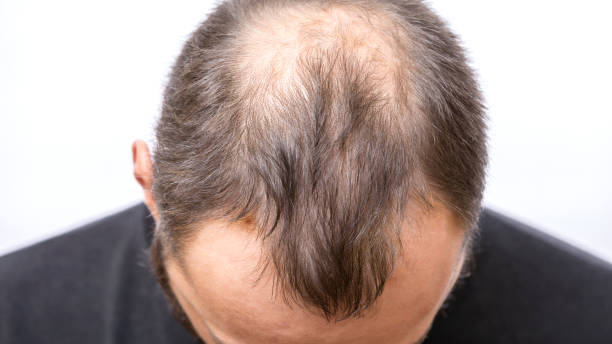Hair fall, also known as hair loss or alopecia, is a common problem that affects many people worldwide. There are several reasons why people experience hair fall, including:
- Genetics: A family history of hair loss is one of the most common causes of hair fall. If your parents or grandparents have experienced hair loss, there is a higher chance that you will also experience it.
- Hormonal changes: Hormonal imbalances, such as those experienced during pregnancy, menopause, or thyroid disorders, can cause hair loss.
- Nutritional deficiencies: A lack of essential vitamins and minerals, such as iron, vitamin D, and biotin, can lead to hair loss.
- Stress: Psychological stress, such as that caused by work, family, or personal issues, can contribute to hair loss.
- Medical conditions: Certain medical conditions, such as scalp infections, autoimmune disorders, and cancer treatments, can cause hair loss.
- Hairstyles and treatments: Hairstyles that put too much tension on the hair, such as tight braids or ponytails, and chemical treatments, such as perms or hair coloring, can damage the hair and cause it to fall out.
- Avoid tight hairstyles. As mentioned earlier, hairstyles that put too much tension on the hair can cause it to fall out. Therefore, avoid tight braids, ponytails, or buns and instead opt for looser hairstyles.
- Be gentle with your hair: When brushing or combing your hair, be gentle and use a wide-toothed comb or a brush with soft bristles. Avoid pulling or tugging on your hair, especially when it is wet.
- Use mild hair care products: Harsh shampoos, conditioners, and styling products can damage your hair and cause it to fall out. Look for mild, gentle hair care products that are free of sulfates, parabens, and other harmful chemicals.
- Eat a healthy diet: A well-balanced diet that includes plenty of fruits, vegetables, whole grains, and lean proteins can provide your body with the nutrients it needs to keep your hair healthy and prevent hair loss.
- Manage stress: Chronic stress can contribute to hair loss, so finding ways to manage stress, such as through exercise, meditation, or yoga, can be beneficial for your overall health and your hair.
- Avoid heat styling: Heat styling tools such as flat irons, curling irons, and hair dryers can damage your hair and cause it to become weak and brittle, leading to hair fall. If you must use heat styling tools, use them sparingly and always use a heat protectant spray or serum.
- Get enough sleep: Getting enough sleep is important for your overall health, and it can also help prevent hair fall. Aim for seven to eight hours of sleep per night to give your body the rest it needs to keep your hair healthy.
- Use natural remedies: There are many natural remedies that can help prevent hair fall, such as aloe vera, onion juice, coconut oil, and fenugreek seeds. These ingredients have properties that can strengthen hair follicles, nourish the scalp, and promote hair growth.
- Don’t smoke: Smoking can damage hair follicles and lead to hair fall. Quitting smoking can not only improve your overall health but also help prevent hair loss.
- Avoid wearing helmets or caps for long periods: Wearing helmets or caps for extended periods can cause friction and pressure on your hair, leading to hair fall. If you have to wear a helmet or cap, take breaks frequently and avoid wearing it for long periods.
- Consider taking supplements: Certain supplements, such as biotin, vitamin D, and iron, can help prevent hair loss and promote hair growth. Consult with a healthcare professional to determine if these supplements are right for you.
- Treat medical conditions: If you have a medical condition that is causing hair loss, such as a thyroid disorder or an autoimmune disease. Treating the underlying condition can help prevent hair fall.
- Avoid using hot water: Hot water can strip your hair of its natural oils, leading to dryness and hair fall. Use lukewarm or cool water instead when washing your hair.
- Protect your hair from the sun. Exposure to the sun’s UV rays can damage your hair and lead to hair fall. Use a hat or a scarf to cover your hair when you’re out in the sun for extended periods.
- Don’t over-wash your hair: Washing your hair too often can strip it of its natural oils. Leading to dryness and hair fall. Aim to wash your hair every two to three days, or as needed.
- Rinse your hair with cold water: After washing your hair, rinse it with cold water. Cold water can help seal the cuticles, which can prevent damage and breakage.
- Use a silk pillowcase: Sleeping on a silk pillowcase can help prevent hair fall by reducing friction and preventing tangles.
- Stay hydrated: Drinking plenty of water can help keep your hair and scalp hydrated. Which can prevent dryness and hair fall.
- Avoid chemical treatments: Chemical treatments such as straightening. Perming, or coloring can damage your hair and cause it to fall out. Avoid these treatments if possible, or use them sparingly

